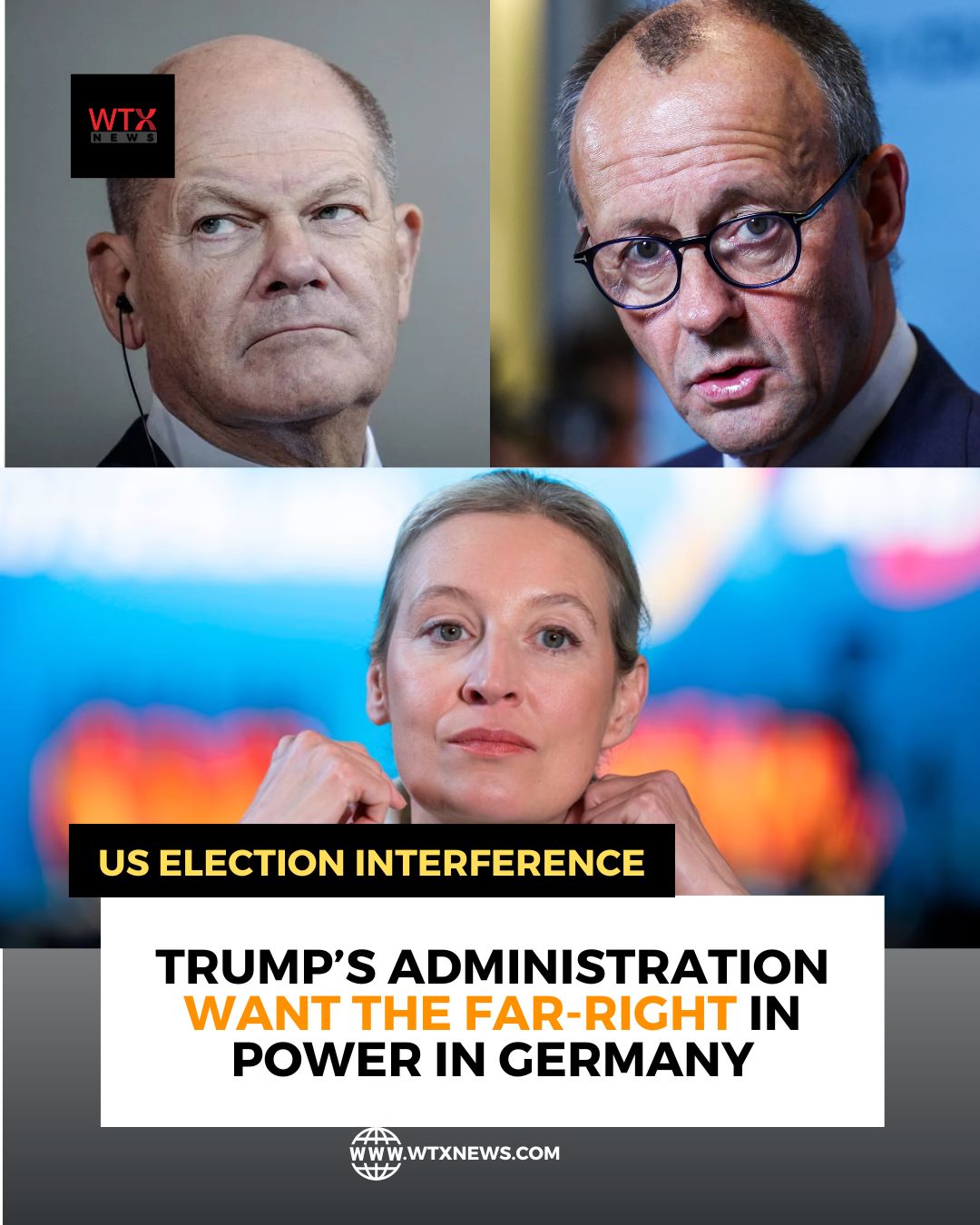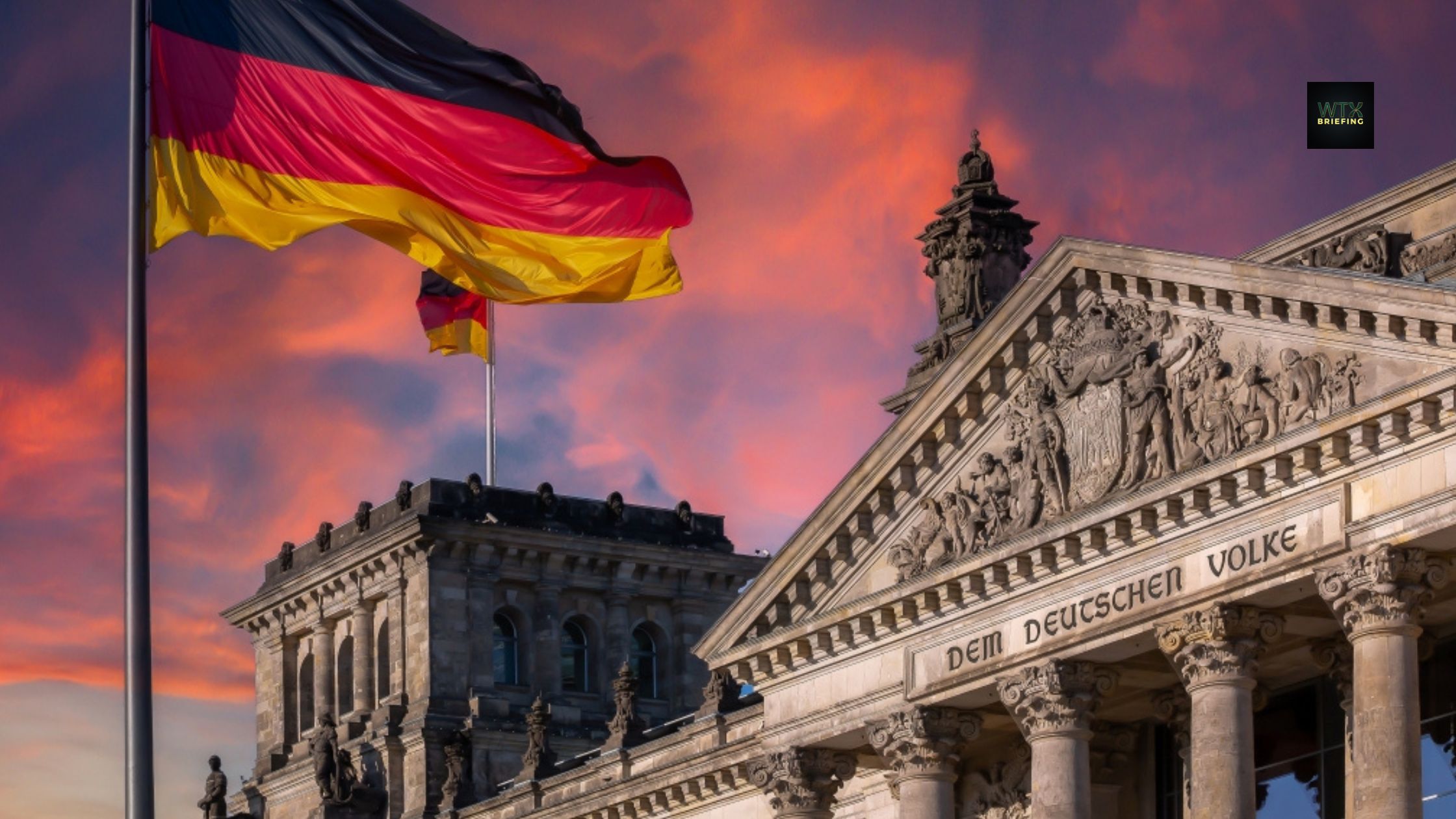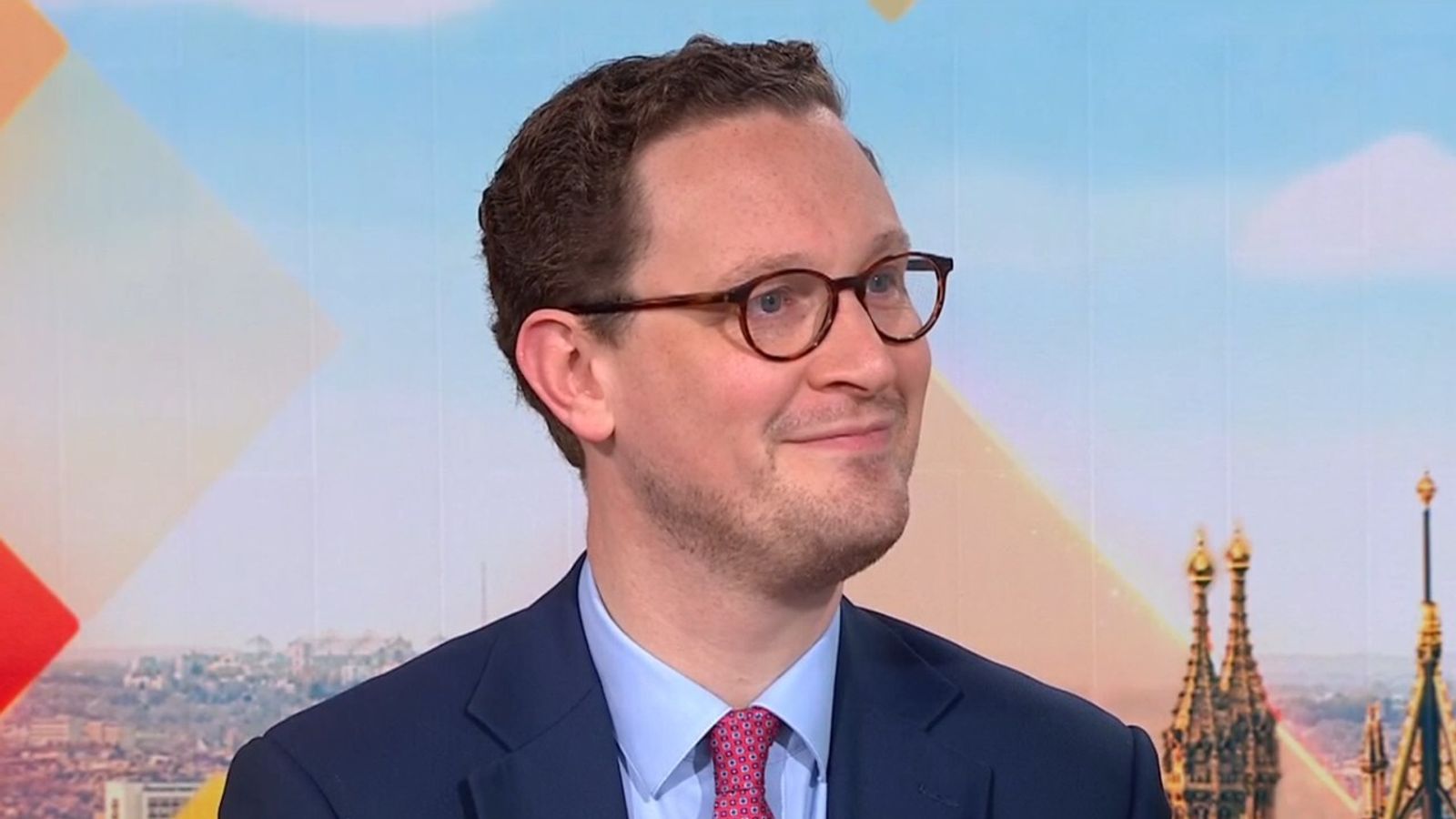German federal election 2025 are the most important ones for years. Now that the far-right are back in Germany and have the funding from the political right.
So how will Europe’s largest economy vote? On Sunday, 23 February 2025, Germans will head to the polls in an election that will have a major impact on Europe.
German elections 2025
When is it? Sunday 23 February 2025
What is the election for? It is the Bundestag election, for how many seats each party will control in the coalition
When will we know the results of the German federal election 2025? It usually takes several days to confirm the final result but exit polls are fairly reliable in Germany so we might have a clearer understanding by the evening.
Who’s running? The main parties standing in the upcoming election are: Linke (the Left), SPD (social democrats), Greens, FPD (liberals), CDU/CSU (conservatives), AfD (right-wing extremist/populist).
Who’s allowed to vote? German nationals who are aged 18 and over and registered nationals living abroad
German federal elections are not too dissimilar to the rest of Europe, but there are a few quirks you should be aware of ahead of Sunday.
What triggered the German Federal Election 2025?
On Sunday, February 23 Germans will head to the polling stations to elect members to the Bundestag (Germany’s federal parliament).
The upcoming German federal election was triggered back in late 2024 after the collapse of Chancellor Olaf Scholz’s coalition government. Scholz’s dismissal of Finance Minister Christian Lindner led to the dissolution of the “traffic light” coalition.
Following this, a vote of confidence in the Bundestag was called. After losing the vote, the German president dissolved the Bundestag and called a snap election.
Bundestag election
Germany uses a mixed-member proportional representation system. When voters arrive at the polls they will be asked to cast two votes. It is different to the first past the post electoral system that we use in the UK and that alongside the fact that voter turnout is always high, is why Germany usually has coalition government.
The First Vote (Erststimme)
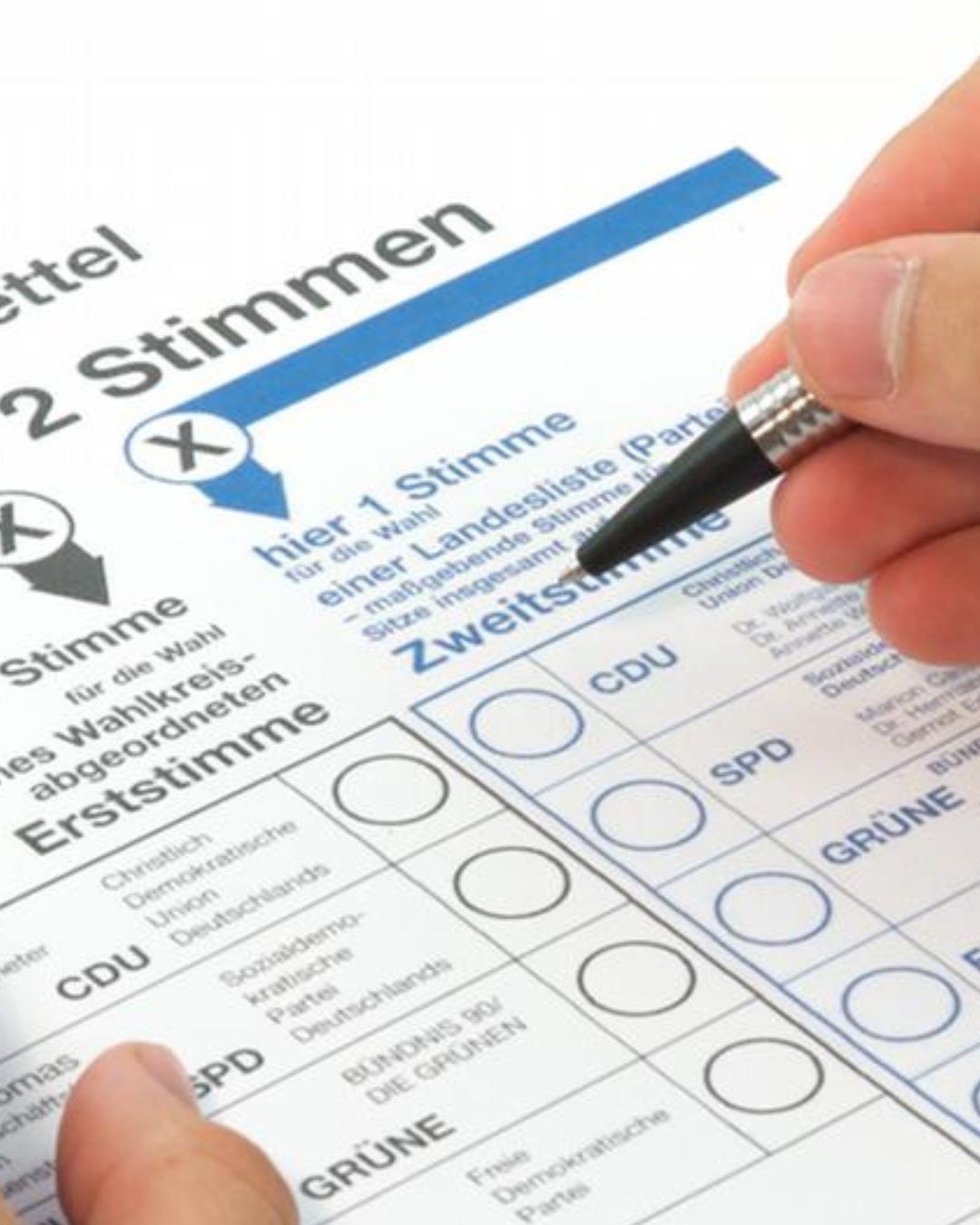
The first vote will see the voter choose a specific candidate in the voter’s local constituency. The candidate who receives the most votes in each of the 299 constituencies secures a seat in the Bundestag.
Second Vote (Zweitstimme)
The second vote is for a political party at the state level. The total percentage of these second votes determines the proportion of seats each party receives in the Bundestag.
What is the Bundestag?
Germany’s parliament is called the Bundestag and under the new law, the number of seats in the Bundestag is limited to 630. The Bundestag makes laws and elects the chancellor, which is German for Prime Minister, the Chancellor has similar power to a Prime Minister and President.
To enter the Bundestag, a party must either:
– Secure at least 5% of the nationwide second votes.
– Win at least three constituency seats directly.
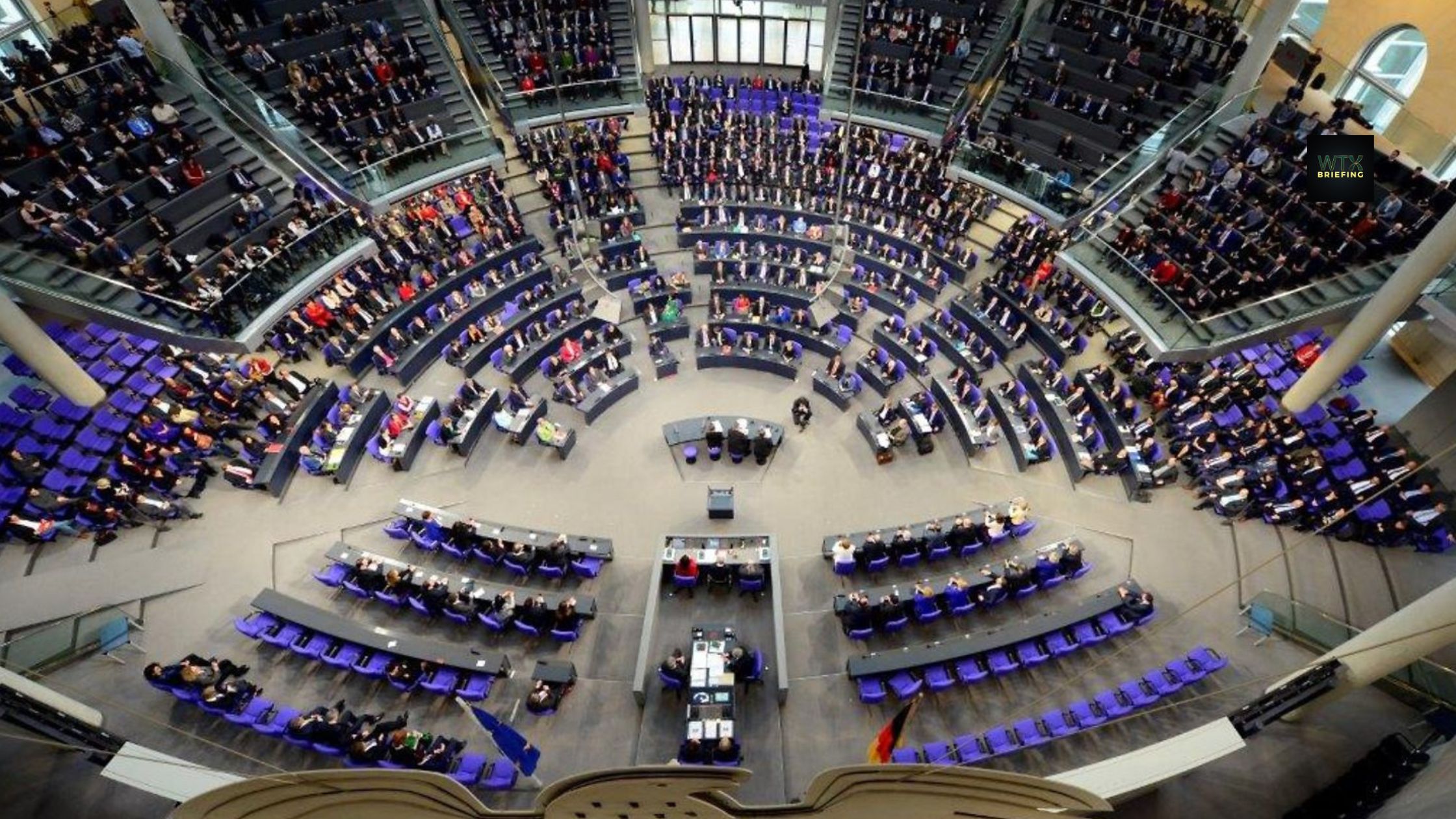
Germans always have a Coalition government
German political parties often form a coalition government – something that would be considered unusual for the UK.
It usually takes several days to confirm the final result but exit polls are fairly reliable in Germany so we might have a clearer understanding by the evening.
It’s really uncommon for a single party in Germany to win enough seats in the Bundestag election for an overall majority, so they work together to form a coalition. This process can take months, as political parties need to find common ground and for a government.
Once a coalition has been formed, the Bundestag elects a chancellor.
Which German political parties are on the ballot?
The voters have plenty of parties to choose from, similarly to the UK, but like most political systems money and capital determine the chances of winning.
When voters head to the polls on Sunday they will be asked to cast two votes; The first vote is for the local elections and the second vote will see them select the political party at the state level.
Who are the big players in German politics?
There are two centrist parties: Olaf Scholz’s centre-left Social Democrats (SPD) and the opposition conservatives, which is made up of an alliance of the Christian Democrats (CDU) and their Bavarian sister party, the Christian Social Union (CSU).
But support for both of these “big-tent” parties has waned over the years with smaller parties such as the Greens and far-right AfD gaining ground.
The SPD, conservatives, Greens and AfD are all fielding candidates for chancellor.
Also running are the pro-market Free Democrats (FDP), the far-left Linke and the leftist Sahra Wagenknecht Alliance (BSW), who are all at risk of missing the 5% threshold to make it into parliament, according to opinion polls.
Who’s eligible to vote in the snap election?
There will be around 61 million people – out of 83 million population – who are eligible to vote. These are German nationals who are aged 18 and over and have lived in the country for at least three consecutive months in the last 25 years. Germans living abroad can also vote by post, so long as they had registered on time.
Women make up just over half of the electorate, almost 40% are age 60 and over and 14% are younger than 30.
Germany can be proud of its voter turnout rates, which tend to be very high. In the last two general elections, voter turnout topped 76%.
Related stories
- Pistorius won’t run for chancellor candidate in Germany snap election
- How the German federal election may shape migration in the entire EU
- German elections 2025: How Russia is influencing the Bundestag election


